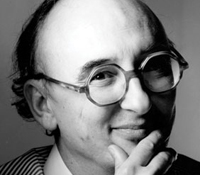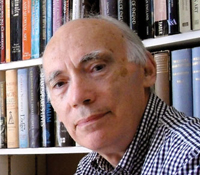With the leaves starting to turn, it’s once again time to celebrate Dalhousie’s best and brightest.
Fall Convocation has arrived. It’s a chance for our newest graduates to take stock of their Dalhousie experience – not just the long nights at the books and the early-morning classes, but the friendships made, opportunities seized and victories large and small that were won. It’s one last ‘hurrah’ for the Class of 2011 as they become our newest Dalhousie alumni.
As usual, the ceremonies will be webcast for those who wish to watch from afar. The schedule is as follows:
- Saturday, October 15, 9:30 a.m. – Dentistry, Health Professions, Medicine, Graduate Studies.
- Saturday, October 15, 2:30 p.m. – Arts and Social Sciences, Computer Science, Engineering, Law, Graduate Studies
- Sunday, October 16, 9:30 a.m. – Architecture and Planning, Management, Science, Graduate Studies.
All ceremonies will take place in the Rebecca Cohn Auditorium at the Dalhousie Arts Centre. More information (including the webcast link) can be found on the Convocation website.
Honourary degrees will be presented at each ceremony, recognizing outstanding individuals who have truly made a difference. This fall’s recipients are a renowned author, a celebrated judge and a groundbreaking scientist.
 Mr. Marq de Villiers (Saturday, morning ceremony)
Mr. Marq de Villiers (Saturday, morning ceremony)
Marq de Villiers is an award-winning non-fiction author and a Member of the Order of Canada. He has engaged his readers in the exploration of various subjects, including complex issues affecting our planet. His bestselling book, Water, earned the Governor General’s Literary Award for non-fiction. Water also received an award from the Canadian Science Writers’ Association.
Born in South Africa, Mr. de Villiers graduated from the University of Cape Town, and earned a diploma in international relations from the London School of Economics.
As a reporter and editor he has crossed international borders – from Cape Town to Moscow. He worked for 14 years with Toronto Life magazine in the consecutive roles of executive editor, editor and publisher. He subsequently became editorial director of WHERE Magazines International in Los Angeles.
Today, Mr. de Villiers and his partner, Sheila Hirtle, call Nova Scotia home. The book they co-authored on Sable Island won the Evelyn Richardson Memorial Literary Prize for Non-fiction. Mr. de Villier’s book on Nova Scotia’s famed Bluenose won the same prize, along with the Dartmouth Book Award for Non-fiction.
 The Honourable Mr. Justice Murray Sinclair (Saturday, afternoon ceremony)
The Honourable Mr. Justice Murray Sinclair (Saturday, afternoon ceremony)
The Honourable Justice Mr. Murray Sinclair is chair of the Truth and Reconciliation Commission of Canada, where he leads a process intended to provide a full and public account of what occurred in this country’s residential schools. Essential to this account are the stories from residential school survivors, their families and their communities.
Through this sharing of experiences and a series of national events, it is hoped a new understanding will emerge and paths to reconciliation will be found. To head such a commission requires leadership, compassion and integrity. These are all qualities that Justice Sinclair exemplifies throughout his personal and professional life.
In 1988, Justice Sinclair became Manitoba’s first aboriginal judge and only the second in the country. From 1988-1991, he was co-commissioner of the Aboriginal Justice Inquiry of Manitoba, a tremendous undertaking that resulted in some 300 recommendations. In 2001 he was appointed a judge of the province’s Court of Queen’s Bench.
Justice Sinclair was honoured with a National Aboriginal Achievement Award in 1994. His culture is integral to who he is. He and his family belong to the Peguis First Nation.
He has co-chaired the North American Indigenous Games and served on a number of boards, including that of the Winnipeg Native Alliance.
 Dr. Tim Bliss (Sunday ceremony)
Dr. Tim Bliss (Sunday ceremony)
Dr. Tim Bliss is recognized worldwide for his pivotal research on the neural basis of learning and memory. The 1973 paper that he co-authored on what is now called Long-Term Potentiation – or LTP – established the most widely-studied experimental model of how the brain stores memories. A truly groundbreaking discovery, LTP is key to our understanding of learning, memory and the brain’s ability to change in response to new conditions.
For over 40 years, Dr. Bliss has been affiliated with the British Medical Research Council National Institute for Medical Research. In 1988 he became head of the division of neurophysiology and then went on to become head of the institute’s neurosciences group. Though he retired from that role in 2006, he is still involved with the division of neurophysiology.
For nearly 20 years, Dr. Bliss has been a collaborator with Dr. Alan Fine, Director of Dalhousie’s Neuroscience Institute. He also conducted research at Dal in the early ’80s. He is a fellow of the Royal Society and the Academy of Medical Sciences. Other honours include the 1991 Bristol-Myers Squibb Award for Distinguished Achievement in Neuroscience Research, which he shared with Nobel laureate Dr. Eric Kandel. In 2012 he will deliver the Royal Society’s prestigious annual Croonian Lecture.

